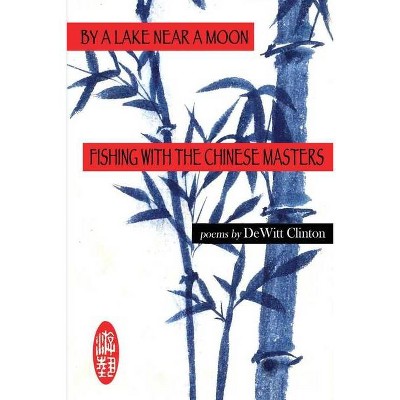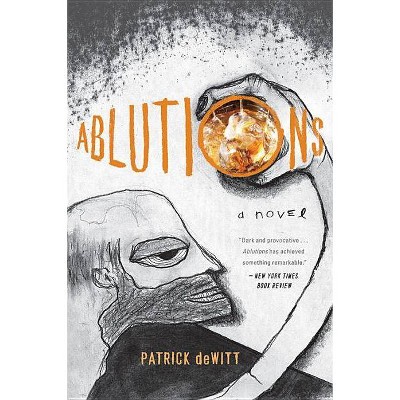By a Lake Near a Moon - by DeWitt Clinton (Paperback)

Similar Products
Products of same category from the store
AllProduct info
<p/><br></br><p><b> Book Synopsis </b></p></br></br><p>In <strong><em>By a Lake Near a Moon: Fishing with the Chinese Masters</em></strong>, a collection of 114 poems-variations based on Kenneth Rexroth's translation, <em>100 Poems from the Chinese </em>(New Directions, 1971)-poet DeWitt Clinton places the poems in a contemporary landscape of Milwaukee, Wisconsin, with lyrical scenes of the changes of seasons, the Lake Michigan beach front, bridges across the Milwaukee rivers, and roads and highways of the nearby countryside. While the themes of the classical Chinese poets (8<sup>th</sup>-13<sup>th</sup> Centuries)-Tu Fu, Meo Yao Ch'en, Ou Yang Hsiu, Su Tung Po, The Poetess Li Ch'ing Chao, Lu Yu, Chu Hsi, and Hsu Chao-remain the same, these adaptations bring life and energy from Classical China to the modern-day world with the changes in the landscape and temperament of the Chinese poets retold by a respected contemporary American Midwest poet.</p><p><br></p><p>Paperback 6 X 9 inches 144 pages including front and back matter.</p><p><br></p><p>Situated in the tradition of poetic improvisation, Clinton's work engages the Classical Chinese Masters within the dimensions of present experience. Lucid and hewn, poignant and fragile, his is a poetry of contemplation and searching. <strong><em>By a Lake Near a Moon </em>sings as a collection of open-hearted grace</strong>. -John Swain, <em>Ring the Sycamore Sky</em>, <em>Under the Mountain Born</em></p><p><br></p><p><strong>DeWitt Clinton's marvelous new collection conducts a quirky, surprise-filled conversation with nine ancient Chinese poets, as translated by Kenneth Rexroth</strong>. As host of this unlikely party, Clinton riffs directly and indirectly on these classic lyrics and their timeless themes, here transplanted to 21st Century Wisconsin. The poems brim with sharp observation, deep feeling, and gracefully understated wisdom. Like their precursors, they are place- and season-haunted, alert to social and natural flux, and ultimately life-affirming. The book is hard to describe but very easy to love.</p><p>-David Graham, <em>Stutter Monk</em> and <em>Second Wind</em></p><p><br></p><p>DeWitt Clinton's marvelous adaptations of Kenneth Rexroth's Chinese translations are remarkable. <strong>They preserve the serenity, lucidity and directness of great Chinese poetry while transforming its setting into the environs of Wisconsin, Milwaukee and even Europe</strong>. The speaking voice feels like that of the originals, while making its surroundings feel remade.</p><p>-John Koethe, <em>Walking Backward: Poems 1966-2016</em></p><p><br></p><p><strong>From the moment I opened this radiant collection, I was entranced by the intimacy, candor, and scope of Clinton's voice</strong>. "How much time do we really have with one another?" he asks in one poem, describing the "quiet task of digging / Through what I already know." Alternately tender and searching, poignant and wry, these beautifully lyrical poems create a compelling portrait of the poet's daily life as writer, husband, teacher, runner, yogi, Viet Nam war veteran, and, most important, seeker and seer. Deceptively simple in their language and architecture, these are poems that leave us "deeply grateful to be here." While inspired by Rexroth's <em>One Hundred Poems from the Chinese</em>, Clinton's poems are completely fresh and original, and luminous as the moon and lake in the book's title. DeWitt Clinton is the contemporary American equivalent to the Chinese sages. This is a stunning accomplishment.</p><p>-Alison Townsend, <em>The Persistence of Rivers</em>, and <em>Persephone in America</em></p><p><br></p><p><br></p>
Price History
Price Archive shows prices from various stores, lets you see history and find the cheapest. There is no actual sale on the website. For all support, inquiry and suggestion messages communication@pricearchive.us




















